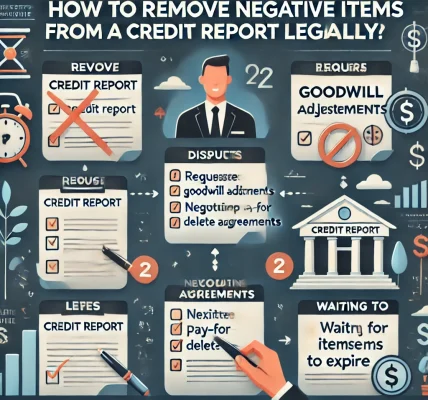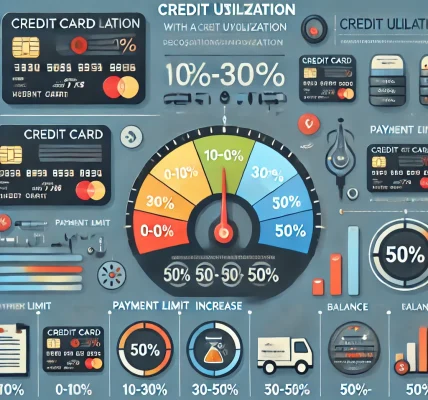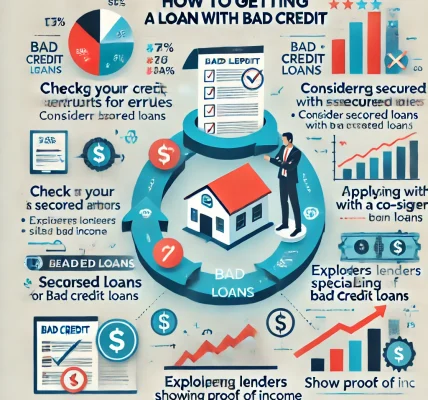Debt can be overwhelming, but if managed strategically, you can negotiate with creditors to reduce your financial burden. Effective negotiation can lead to lower interest rates, extended payment terms, or even a reduced settlement amount. This DIY guide will walk you through proven strategies to settle debt while protecting your financial health.
Understanding Debt Negotiation
Debt negotiation involves working with creditors or collection agencies to settle outstanding balances under revised terms. This can help you avoid serious financial consequences, such as legal action or damage to your credit score.
Types of Debt That Can Be Negotiated
- Credit Card Debt – Creditors may offer lower interest rates, waivers on fees, or lump-sum settlements.
- Personal Loans – Some lenders may adjust payment schedules or reduce the principal balance.
- Medical Debt – Hospitals and medical providers often have hardship programs.
- Student Loans – Federal loans offer repayment plans, while private lenders may offer settlements.
- Auto Loans – Lenders may extend terms or lower monthly payments.
Key Steps to Negotiating Debt Settlement
1. Assess Your Financial Situation
Before contacting creditors, review your financial status to determine how much you can realistically afford to pay.
Steps to Assess Debt:
- List all outstanding debts with balances, interest rates, and due dates.
- Analyze your income and monthly expenses.
- Determine a reasonable settlement amount or new repayment plan.
2. Understand Your Creditor’s Perspective
Creditors prefer partial repayment over total loss, making them open to negotiation. However, they may be more flexible if:
- Your debt is significantly overdue.
- You have a financial hardship (e.g., job loss, medical emergency).
- You offer a lump-sum payment or structured installment plan.
3. Contact Your Creditors
Reach out to creditors before your debt reaches collection agencies. Be professional, honest, and prepared.
How to Initiate the Conversation:
- Call the customer service number on your bill.
- Explain your financial situation and reason for difficulty.
- Request specific relief options (e.g., lower interest rate, settlement, payment extension).
- Take detailed notes of all conversations.
4. Propose a Realistic Settlement Plan
Creditors are more likely to agree if your proposal is reasonable.
Settlement Options:
- Lump-Sum Settlement: Offering a single reduced payment (e.g., 40-60% of the total debt).
- Installment Payment Plan: Agreeing to a structured monthly repayment plan.
- Interest Rate Reduction: Negotiating a lower APR to reduce future payments.
- Fee Waivers: Requesting the removal of late fees and penalties.
5. Get Everything in Writing
Before making any payment, request written confirmation of the agreement, including:
- New settlement terms.
- Final amount due.
- Payment schedule and deadlines.
- Agreement that the remaining balance will be marked as “paid” or “settled.”
6. Make Payments as Agreed
Once the settlement is finalized, ensure you:
- Pay on time to avoid penalty reinstatements.
- Keep records of payments and correspondence.
- Monitor your credit report to ensure updates reflect your agreement.
Common Mistakes to Avoid in Debt Settlement
1. Accepting the First Offer Without Negotiation
Many creditors expect counteroffers. Always negotiate for better terms.
2. Failing to Get a Written Agreement
Verbal agreements are not legally binding. Always request written confirmation before making payments.
3. Paying Debt Collectors Before Validating the Debt
Debt collectors must provide written proof of the debt. Request validation before making any payments.
4. Settling Debt Without Understanding Credit Impact
Settled debts may be reported as “settled for less than owed,” which can impact your credit score. Clarify how it will be reported.
5. Ignoring Tax Implications
Forgiven debt may be considered taxable income. Consult a tax professional if settling a large debt.
Alternative Debt Relief Options
If negotiation does not work, consider alternative options:
1. Debt Consolidation
- Combine multiple debts into a single loan with a lower interest rate.
2. Credit Counseling
- Work with non-profit credit counselors to create a debt management plan (DMP).
3. Bankruptcy (Last Resort)
- Chapter 7 or Chapter 13 bankruptcy can provide relief, but it has long-term credit consequences.
Final Thoughts
Debt settlement can be an effective strategy for financial relief if done correctly. By assessing your financial situation, negotiating effectively, and securing written agreements, you can regain control over your finances and work towards a debt-free future.




